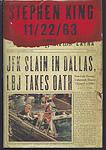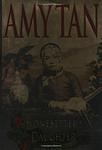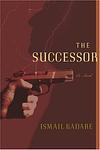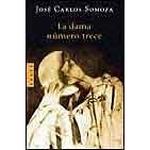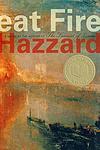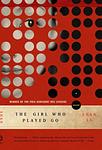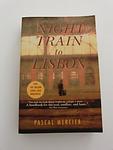The Greatest "Historical fiction, Psychological, Fiction" Books Since 2000
Click to learn how this list is calculated.
This list represents a comprehensive and trusted collection of the greatest books. Developed through a specialized algorithm, it brings together 300 'best of' book lists to form a definitive guide to the world's most acclaimed books. For those interested in how these books are chosen, additional details can be found on the rankings page.
Genres
Historical fiction is a genre of literature that combines fictional stories with real historical events, settings, and characters. These books often take place in a specific time period and are based on research and factual information, but also include imaginative elements to create a compelling narrative. Historical fiction allows readers to experience the past in a unique and engaging way, while also providing insight into the social, cultural, and political issues of the time.
The Psychological genre of books typically explores the inner workings of the human mind and emotions, often delving into complex and sometimes disturbing psychological states. These books may focus on mental illness, trauma, relationships, or personal growth, and often challenge readers to confront their own beliefs and perceptions. Psychological books may be suspenseful, thought-provoking, and emotionally intense, offering readers a deep and often unsettling glimpse into the human psyche.
Countries
Date Range
Reading Statistics
Click the button below to see how many of these books you've read!
Download
If you're interested in downloading this list as a CSV file for use in a spreadsheet application, you can easily do so by clicking the button below. Please note that to ensure a manageable file size and faster download, the CSV will include details for only the first 500 books.
Download-
1. Atonement by Ian McEwan
Atonement is a powerful novel that explores the consequences of a young girl's false accusation. The narrative follows the lives of three characters, the accuser, her older sister, and the sister's lover, who is wrongly accused. This false accusation irrevocably alters their lives, leading to the accused's imprisonment and eventual enlistment in World War II, while the sisters grapple with guilt, estrangement, and their own personal growth. The novel is a profound exploration of guilt, forgiveness, and the destructive power of misinterpretation.
-
2. The Blind Assassin by Margaret Atwood
The novel is a complex narrative that weaves together the story of two sisters in early 20th century Canada, one of whom publishes a scandalous novel that leads to her suicide. The surviving sister, now an elderly woman, reflects on their lives, revealing family secrets, heartbreak, and the truth behind the scandalous novel. The narrative is interspersed with excerpts from the controversial book, a science fiction story within a story, adding layers of intrigue and mystery.
-
3. The Sympathizer by Viet Thanh Nguyen
"The Sympathizer" is a gripping spy novel set during the Vietnam War. The protagonist is a half-French, half-Vietnamese army captain who is a communist double agent. After the Fall of Saigon, he moves to America with other South Vietnamese refugees and struggles to reconcile his dual loyalties as he continues to spy on his fellow countrymen in exile. The novel explores themes of identity, war, and politics, while providing a unique perspective on the Vietnam War and its aftermath.
-
4. Life After Life by Kate Atkinson
"Life After Life" follows the story of Ursula Todd who is born and dies repeatedly in February 1910. Each time Ursula dies, her life restarts, with each successive life bringing different circumstances and decisions. The novel explores themes of fate, free will, and the infinite possibilities of existence. Through Ursula's many lives, the narrative provides different perspectives on significant historical events, including both World Wars.
-
5. 11 22 63 by Stephen King
"11/22/63" is a science fiction novel by Stephen King that follows the story of Jake Epping, a high school English teacher who discovers a portal that leads to 1958. After being convinced by his friend Al to use the portal to prevent the assassination of John F. Kennedy, Jake embarks on a journey through time to change the course of history. Along the way, he falls in love with a woman named Sadie and faces various obstacles that threaten to alter the timeline he is trying to change. The book explores themes of love, loss, and the consequences of trying to change the past.
-
6. Brooklyn by Colm Tóibín
The novel tells the story of a young Irish woman, Eilis Lacey, in the 1950s who, unable to find work at home, is sent to Brooklyn by a helpful priest where she builds a new life. She finds work, studies to become a bookkeeper, and falls in love with an Italian plumber named Tony. However, a family tragedy forces her to return to Ireland, where she must choose between her new life in America and her old life at home.
-
7. Tree of Smoke by Denis Johnson
"Tree of Smoke" is a war novel that explores the chaos, violence, and moral ambiguity of the Vietnam War. The story follows a diverse cast of characters, including a CIA operative, a young soldier, and a pair of missionaries, all of whom are trying to navigate the uncertainties and horrors of the war. The novel delves into themes of faith, fate, and the human capacity for both good and evil, offering a gritty and complex portrait of a turbulent period in history.
-
8. The Bonesetter's Daughter by Amy Tan
This novel explores the complex relationship between a Chinese-American woman and her immigrant mother, who is suffering from dementia. As the mother's condition worsens, her daughter discovers a manuscript written in Chinese that reveals her mother's traumatic past and the true identity of her grandmother - a renowned bonesetter in China. The narrative oscillates between contemporary San Francisco and early 20th century China, illustrating the enduring power of family bonds, the weight of cultural heritage, and the profound impact of past events on present lives.
-
9. The Successor by Ismail Kadare
"The Successor" is a political thriller set in Albania during the 1980s. The narrative revolves around the mysterious death of the designated successor of the country's dictator. The successor is found dead in his bed one morning, which the regime declares as a suicide but the public believes to be an assassination. The novel explores the political intrigue, power struggles, and paranoia within the totalitarian regime, and the fear and silence of the people under its rule.
-
10. La Dama Número Trece by José Carlos Somoza
This novel is a thrilling blend of mystery, horror, and fantasy, revolving around a struggling writer who becomes the target of a secret society known as "The Thirteen Ladies". These shadowy figures have the ability to manipulate reality through the power of words and storytelling. As he is drawn deeper into their world, he must uncover their secrets and find a way to survive their deadly games. The narrative is a rich exploration of the power of language and mythology, with a suspenseful plot that keeps readers on the edge of their seats.
-
11. De Niro's Game by Rawi Hage
The novel delves into the lives of two childhood friends navigating the treacherous landscape of war-torn Beirut. As the city crumbles under the weight of the Lebanese Civil War, the young men find themselves drawn into the violence and chaos that surrounds them. One chooses the path of emigration, seeking a new life abroad, while the other becomes embroiled in the militia warfare that dominates the streets. Their friendship is tested by the brutality of their environment, as they grapple with the moral complexities of survival, loyalty, and the devastating impact of conflict on the human spirit.
-
12. The Sound Of Things Falling by Juan Gabriel Vásquez
"The Sound Of Things Falling" is a thought-provoking novel that delves into the complex and haunting aftermath of the drug trade in Colombia. Set against the backdrop of a turbulent country, the story follows the lives of two men whose paths intertwine in unexpected ways. Through vivid storytelling and poignant reflections, the book explores themes of memory, guilt, and the lasting impact of violence on individuals and society.
-
13. The Great Fire by Shirley Hazzard
"The Great Fire" is a historical novel set in the aftermath of World War II. The story follows a British war hero, Aldred Leith, who is sent to occupied Japan to research the effects of the war on the country's culture. During his stay, he falls in love with a young girl, Helen, who is the daughter of the Australian camp commander. Despite the age difference and societal expectations, the two form a deep bond. The book explores themes of love, war, cultural change, and personal transformation.
-
14. Anil's Ghost by Michael Ondaatje
"Anil's Ghost" is a gripping tale of a forensic anthropologist who returns to her native Sri Lanka in the midst of its civil war. She partners with local archaeologist, Sarath, to investigate a skeleton discovered in an ancient burial site, which they believe might be a victim of the war. The narrative explores the horrors of war, the quest for truth, and the struggle for personal and national identity in a land where the past and present are inextricably intertwined.
-
15. A Tale For The Time Being by Ruth Ozeki
In this introspective novel, a diary washes ashore on a remote Canadian island, bridging two disparate worlds. The journal, written by Nao, a troubled Japanese teenager, chronicles her life, her contemplation of suicide, and her relationship with her great-grandmother, a Zen Buddhist nun. The diary is discovered by a novelist, who becomes engrossed by Nao's story and is compelled to unravel the mysteries of Nao's fate and her own connection to the young girl. As the novelist reads, the boundaries between writer and reader, past and present, fiction and reality blur, creating a meditation on time, loss, and the intricate threads that connect human lives across the globe.
-
16. The Museum Of Innocence by Orhan Pamuk
This novel delves into the obsessive love of Kemal, a wealthy Istanbulite, for Füsun, a distant relative and a shopgirl, which begins in 1975 and spans over 30 years. After a brief affair, Füsun marries another man, but Kemal's love remains unyielding. He starts collecting objects that remind him of his love for her, eventually creating a museum dedicated to their relationship. Set against the backdrop of Istanbul's changing society, the story explores themes of love, longing, class, and the power of memory, as Kemal's life becomes a testament to his unattainable desire, encapsulated within the walls of his museum.
-
17. The Little Stranger by Sarah Waters
"The Little Stranger" is a gothic novel set in post-World War II Britain, where a country doctor becomes involved with an aristocratic family living in a crumbling mansion. The doctor becomes increasingly entangled with the family as he attempts to unravel the mystery of a malevolent presence that seems to be causing accidents and illness. As the story unfolds, it becomes clear that the haunting may be more psychological than supernatural, reflecting the decline of the British class system and the trauma of war.
-
18. Day by A. L. Kennedy
"Day" is a powerful novel about a World War II veteran who returns to the scene of his former imprisonment as an extra on a film set. The protagonist is haunted by his experiences as a tail gunner and a prisoner of war, and the narrative alternates between his time in the stalag and his present day experiences on the set. As he grapples with his past, he also seeks to reconnect with a woman he once loved, adding a poignant layer to his journey of self-discovery and healing.
-
19. The Night Watch by Sarah Waters
Set in 1940s London during and after World War II, this novel unfolds in reverse chronological order, revealing the lives, loves, and losses of its characters in a deeply immersive narrative. Through the experiences of a diverse group of Londoners, including an ambulance driver, a conscientious objector, and a couple navigating the complexities of a lesbian relationship in a time of pervasive social conservatism, the story delves into themes of love, betrayal, and the secrets we keep. The backdrop of the war-torn city serves as a poignant counterpoint to the personal battles and intimate connections that define the characters' lives, offering a unique perspective on the impact of war on everyday existence and the resilience of the human spirit in the face of adversity.
-
20. The Swallows Of Kabul by Yasmina Khadra
Set against the backdrop of the Taliban's oppressive rule in Afghanistan, the novel weaves a poignant tale of two couples whose lives become tragically intertwined. As the city of Kabul crumbles under the weight of fundamentalist tyranny, the characters struggle with their personal desires, moral dilemmas, and the suffocating nature of societal expectations. The story explores themes of love, sacrifice, and the quest for freedom, painting a stark portrait of the human cost of political extremism and the resilience of the human spirit in the face of despair.
-
21. The Girl Who Played Go by Shan Sa
Set in the 1930s during the Japanese occupation of Manchuria, the novel intertwines the lives of a young Chinese girl, a master of the ancient board game Go, and a Japanese soldier. As the girl seeks refuge from the turmoil of war in the strategy and beauty of Go, she encounters the soldier in the public square where they silently engage in a series of games. The board becomes a silent battleground reflecting their personal and political struggles. Their growing connection and the insights they gain into each other's cultures and vulnerabilities lead to a poignant and tragic conclusion, underscoring the senselessness of war and the transcendent power of human connection and empathy.
-
22. Carbide by Andriy Lyubka
In this thought-provoking novel, "Carbide" explores the complex dynamics of power, corruption, and the human condition. Set in a dystopian society, the story follows a young protagonist who becomes entangled in a dangerous game of political intrigue. As he navigates through the treacherous landscape, he discovers shocking truths about the ruling elite and the lengths they will go to maintain their control. With its compelling narrative and vivid imagery, "Carbide" delves into the dark underbelly of society, challenging readers to question their own beliefs and the nature of power.
-
23. Night Train To Lisbon by Pascal Mercier
The book revolves around a Swiss classics teacher who, upon encountering a mysterious book by a Portuguese author, becomes obsessed with the life and thoughts of the writer. This obsession leads him to abandon his job and life in Bern, embarking on an impulsive journey to Lisbon. In his quest to understand the author's fate and the resistance movement against the Portuguese dictatorship that the author was involved in, the protagonist explores themes of history, philosophy, and the complexities of human character. As he delves deeper into the past, he encounters various individuals who were connected to the author, piecing together a narrative that challenges his own understanding of life and identity.
-
24. Born Twice by Giuseppe Pontiggia
The novel centers around a father's profound journey as he navigates the complexities of raising a son with cerebral palsy. The narrative delves into the emotional and social challenges they face, exploring themes of acceptance, resilience, and the redefinition of fatherhood. Through his son's condition, the father confronts his own vulnerabilities and the societal prejudices against disability, ultimately experiencing a profound transformation that leads him to a deeper understanding of love, identity, and the human experience.
-
25. The Yellow Birds by Kevin Powers
"The Yellow Birds" by Kevin Powers is a novel that tells the story of two young soldiers, Bartle and Murphy, who are sent to fight in the Iraq War. The novel explores the physical and emotional toll of war on the soldiers, their families, and their communities. It also delves into the themes of guilt, loss, and the struggle to find meaning in the aftermath of traumatic experiences. The novel is a powerful portrayal of the human cost of war and the lasting impact it can have on those who serve.
Reading Statistics
Click the button below to see how many of these books you've read!
Download
If you're interested in downloading this list as a CSV file for use in a spreadsheet application, you can easily do so by clicking the button below. Please note that to ensure a manageable file size and faster download, the CSV will include details for only the first 500 books.
Download



